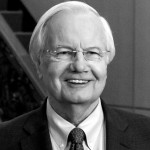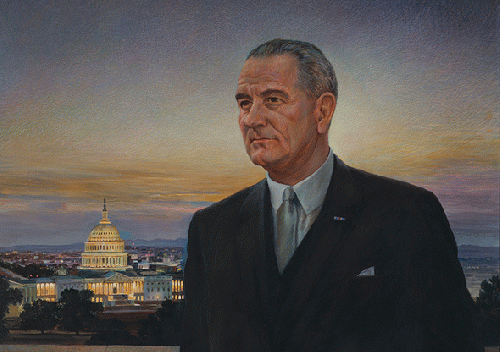From Moyers & Company
Yes, our health system is broken, but broken systems can be fixed -- not easily, but they can be fixed.
Watching the craziness in the Senate this week, as Mitch McConnell and the GOP's zealots drove their clown car into a brick wall and yet another effort to take away health care coverage from millions crashed and burned, I thought back to a different turn of events.
It was 52 years ago Sunday -- July 30, 1965. Two American presidents celebrated the birth of Medicare, the most significant advance toward national health insurance in America's history.
I was a White House assistant at the time, working for President Lyndon B. Johnson as he coaxed, cajoled, badgered, buttonholed and maneuvered Congress into enacting Medicare for the aging and Medicaid to help low-income people. For all the public displays over the years of his outsized personae and powers of persuasion, this time he had kept a low profile, working behind the scenes as his legislative team and career health care experts practically lived on Capitol Hill, negotiating with members of Congress and their staffs.
From the White House, LBJ worked the phones; invited senators and representatives singly and collectively in for coffee, drinks or dinner; listened attentively in private to opponents and proponents from interests as varied as business, labor, medicine and religion; and kept in his head a running tally of the fluctuating vote count.
As it had been for decades, it was a tough fight down to the wire. A look back is instructive, not only to show how long it can take to move a legislative dream to reality but also to illustrate how a president with a grasp of history and knowledge of how government works is crucial to making success possible.
In 1935, when President Franklin Roosevelt first tried and failed to get health insurance included as part of Social Security, I was one year old and my family was broke. The Great Depression had ended my father's tenant farming. He took a job for a dollar a day as a laborer on the construction of a highway in southeast Oklahoma.
Earlier, my mother had lost twin girls -- one at birth, the other some months later -- because the nearest doctor was too far away to arrive in time to help. My parents moved into town. To pay the doctor who delivered me, my father lugged large stones by hand to the site the physician had bought to build his first office. It's still there.
At about this time in Washington, Republicans, conservative Democrats and the American Medical Association (AMA) were winning their fight to sink President Roosevelt's proposal for health insurance. Congress was intimidated, and in August 1935 FDR gave up, signing the Social Security Act without health coverage.
Eight years later, in the midst of World War II, he once again called for social insurance "that will extend from the cradle to the grave." And again, his proposal went nowhere.
On FDR's death, Harry Truman became president. In his 1948 Message to Congress on the State of the Union, he said:
"This great nation cannot afford to allow its citizens to suffer needlessly from the lack of proper medical care. Our ultimate aim must be a comprehensive insurance system to protect all our people equally against insecurity and ill health."
Congress still refused to budge. Running for election in his own right that year, and way behind in the polls, Truman won an upset victory after demanding that health care insurance and civil rights be included in the Democratic Party platform. That same year, congressman Lyndon Johnson of Texas, whose home district was Democratic and liberal in a state turning increasingly Republican and conservative, was running for election to the US Senate. He opposed Truman's health care plan as socialistic and was elected.
In 1952, Republicans won control of Congress for the first time since 1932 and hardened their stand against a national health care program. War hero Dwight Eisenhower won the presidency for the Republicans. He, too, opposed the plan that had been shelved by Congress before Truman left office.
(Note: You can view every article as one long page if you sign up as an Advocate Member, or higher).






